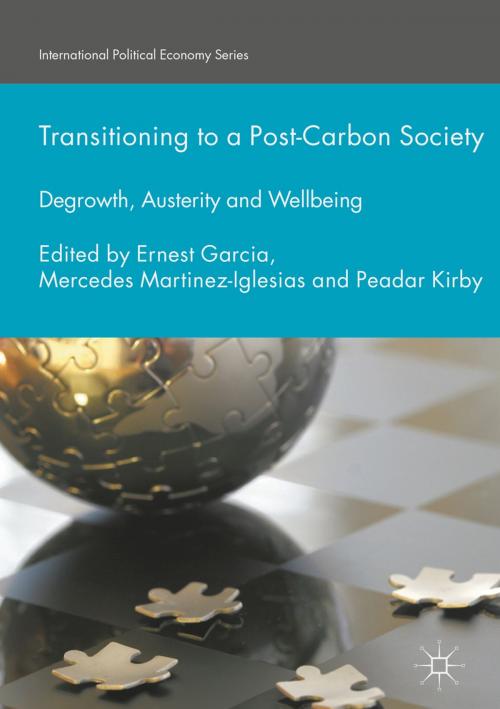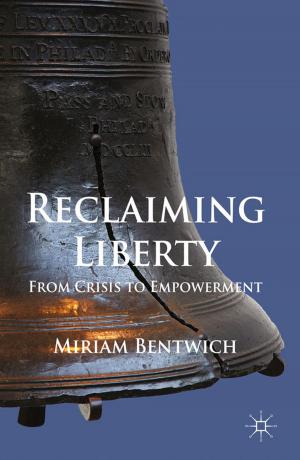Transitioning to a Post-Carbon Society
Degrowth, Austerity and Wellbeing
Nonfiction, Social & Cultural Studies, Political Science, Politics, Economic Conditions, Science & Nature, Science, Earth Sciences, Business & Finance| Author: | ISBN: | 9781349951765 | |
| Publisher: | Palgrave Macmillan UK | Publication: | December 27, 2016 |
| Imprint: | Palgrave Macmillan | Language: | English |
| Author: | |
| ISBN: | 9781349951765 |
| Publisher: | Palgrave Macmillan UK |
| Publication: | December 27, 2016 |
| Imprint: | Palgrave Macmillan |
| Language: | English |
This book deals with one of the most pressing social and environmental issues that we face today. The transition to a post-carbon society, in which the consumption of fossil fuels decreases over time, has become an inevitability due to the need to prevent catastrophic climate change, the increasing cost and scarcity of energy, and complex combinations of both of these factors. As the authors point out, this will not only entail political adjustments and the replacement of some technologies by others, but will be accompanied by social and cultural changes that bring about substantial modifications in our societies and ways of life. This book examines whether the current conditions, which date back to the crisis that began in 2007, favour a benign and smooth transition or will make it more difficult and prone to conflict. It argues that, even if this transformation is unavoidable, the directions it will take and the resulting social forms are much less certain. There will be many post-carbon societies, the authors conclude, and any number of routes to social change. Transitioning to a Post-Carbon Society therefore represents a significant contribution to global debates on the environment, and is vital reading for academics, policymakers, business leaders, NGOs and the general public alike.
This book deals with one of the most pressing social and environmental issues that we face today. The transition to a post-carbon society, in which the consumption of fossil fuels decreases over time, has become an inevitability due to the need to prevent catastrophic climate change, the increasing cost and scarcity of energy, and complex combinations of both of these factors. As the authors point out, this will not only entail political adjustments and the replacement of some technologies by others, but will be accompanied by social and cultural changes that bring about substantial modifications in our societies and ways of life. This book examines whether the current conditions, which date back to the crisis that began in 2007, favour a benign and smooth transition or will make it more difficult and prone to conflict. It argues that, even if this transformation is unavoidable, the directions it will take and the resulting social forms are much less certain. There will be many post-carbon societies, the authors conclude, and any number of routes to social change. Transitioning to a Post-Carbon Society therefore represents a significant contribution to global debates on the environment, and is vital reading for academics, policymakers, business leaders, NGOs and the general public alike.















